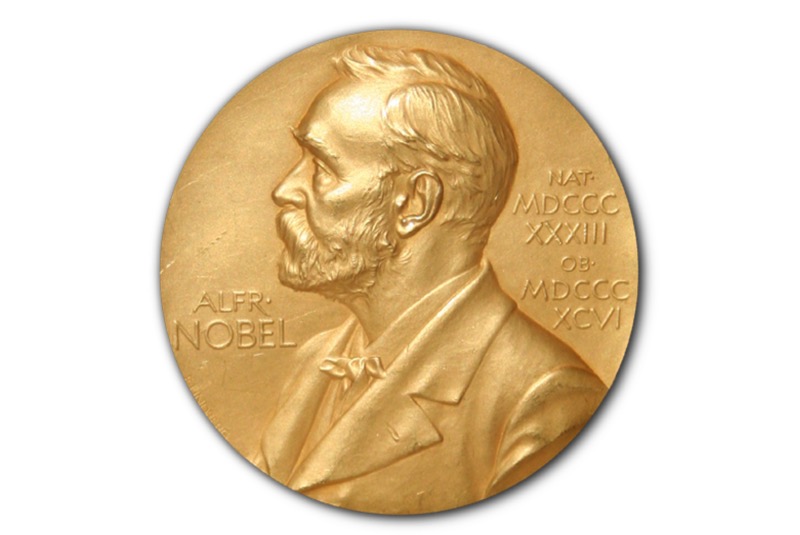In today’s world, there are a multitude of prizes. Most of them are for what could be broadly described as achievements in creative endeavours or contributions to public life. The Nobel prizes in different categories, with their long history, are probably the most well-known ones. There are many other highly prestigious prizes, such as the Fields Medal and the Abel Prize in mathematics, the “Breakthrough Prize”, the Turing Award in computational sciences, the Lasker Award in the medical sciences, the Booker and Pulitzer Prizes in literature, etc.
Among all these, the Nobel Prize occupies a special place. The attention paid to the Nobel prize winners by an average citizen is not because of the monetary part of the award. It is the mystique and the long history behind the Nobel prizes that bestow a special kind of marketability and visibility to the winners. There are already two reports on the internet speculating on the prizes that are to be announced next week.
The first has the catchy title “How to win a Nobel Prize” and has an immersive visual representation of statistical data. The second starts with an intriguing statement:
The best minds in science will be thrust from academic obscurity into the spotlight next week when the Nobel Prizes in physics, chemistry, and physiology or medicine are announced.
Nobel prizes indeed can turn low-profile researchers into overnight national celebrities. Two recent examples are Tu Youyu of China, who won the Nobel prize in biology in 2015 for her work on antimalarial drugs, and Yves Chauvin of France, who won the Nobel prize in Chemistry in 2005 for his work on an important industrial process. It was only after winning the prize that Tu received the “Highest Science and Technology Award” in China, and Chauvin was elected to the French Academy of Sciences.
Another well-known recent example is that of Katalin Kariko. She won the Breakthrough Prize in 2021 and the Nobel Prize in Physiology or Medicine in 2023 for discoveries that enabled the development of mRNA-based vaccines against COVID-19. After she won the prizes, it became common knowledge that she had had to endure demotion, a pay cut, and numerous rejections of grant proposals and research papers while carrying on with her research. In fact, the crucial paper that brought her eventual recognition was initially rejected.
Such stories are indicative of the serious shortfalls that afflict many national scientific establishments. One of the noteworthy positive effects of the Nobel prizes has been to bring to light such shortfalls. It has underlined the need for improvement in the reviewing, funding and recognition processes of scientific research. However, choosing ten or so Nobel prize winners from tens of thousands of individuals is not an exercise without its own weaknesses.
In 2019, a well-researched newspaper article provocatively titled the Nobel prizes as “For some they are the pinnacle of recognition, for others they reek of western bias and sexism”. It pointed out that the statistics suggest gender and possibly other biases. Up to 2019, only three out of 207 prizes in physics and 5 out of 176 in chemistry were won by women. The gender ratio for Economics, the dismal science, was the worst, with only one woman Nobel laureate out of 80 till 2018. As an aside it is interesting to note that four of Nobel’s relatives formally distanced themselves from the economics prize. It is funded by Sveriges Riksbank and was added as a new category in 1969. Finally, no black scientist has ever been recognised by a Nobel science committee.
All awards, big and small, increase the visibility of the awardee in his or her specific area of interest. Innumerable smaller awards are handed out by journals, learned societies, etc., with titles such as ‘best paper’ or ‘most promising young researcher’. A scrutiny of the intricate process of application, nomination, and judging of such awards is revealing about the award culture in general. Detailed statistical analyses show that the selection processes, in general, are vague and lack transparency.
It is not at all certain that such awards are a recognition of robust and reproducible science. Furthermore, because such awards can filter and reinforce what is considered excellent research, they become self-referential, thereby promoting a celebrity culture. In short, substituting a passion for science with a passion for the prizes adds significantly to the reproducibility crisis and other biases of today’s science.
A big problem of the award-based celebrity culture is that they over-emphasize individual contributions and competition. They ignore the collective and collaborative nature of science. This perpetuates the incorrect view that science advances via the “lone genius” rather than through collaboration and cooperation. As an example, consider the 2017 Physics Nobel Prize to three physicists for their contributions that led to the setting up of the LIGO detector and the observation of gravitational waves.
There were 355 co-authors from at least 20 countries who contributed to the success of the project. Similarly, the human genome project launched in 1990 and completed in 2003 involved thousands of researchers from many different countries. Although it did not win a Nobel prize, its outstanding contribution to biological sciences is beyond any doubt.
The existing award systems very often do not have adequate mechanisms that recognize this collaborative and cooperative aspect of scientific research. As an example, consider this year’s recently announced Lasker awards to three scientists for blockbuster anti-obesity drugs. Because winning a Lasker often precedes winning a Nobel prize, it is quite likely that the same three scientists may win the Nobel this year. 8 If that indeed turns out to be the case, then in the words of an obesity specialist, it would be like picking out “three ants” out of “10,000 ants that move the anthill”.
In any rethinking of the award system, the societal expectations from science as a social practice must also be considered. In 2019, John Goodenough won the Nobel Prize in Chemistry for his contribution to Li-ion battery. He was 97 years old then, the oldest person in the history of the Nobel Prizes to win an award. It may be his long experience at the forefront of science that made him say, “Prizes are decisions made by those who do the awarding…The main thing is ‘What is your contribution really to society'”. Others have echoed similar sentiments and argued that awards maybe used to champion a vision for a more equitable future.
Is there any reason to believe that the award givers, in general, desire to have that kind of vision? Any rethinking of the award system would mean compromising on the celebrity and public relations value of the award. One of the family members of Nobel may have had something similar in mind when he said that the prize in economics was “a PR coup by economists to improve their reputation”. The point he was making is that the prize culture in academia fits well with the celebrity culture in society.
Jean-Paul Sartre, a public intellectual of the last century, is the only person known to have declined the Nobel Prize in literature. He never accepted any official honours and did not want the writer to become an institution. In this century, the Russian mathematician Grigori Perelman echoed the same sentiment when he said, “I’m not interested in money or fame; I don’t want to be on display like an animal in a zoo”. He declined the Fields medal and two other prestigious prizes in mathematics. John Le Carre, the British writer, wanted to be taken off the shortlist of the prestigious Man Booker International Prize and said he “doesn’t compete for literary awards”. So far, nobody is known to have declined a Nobel prize in science. It can be confidently predicted that this year will not be any different.
-30-
Copyright©Madras Courier, All Rights Reserved. You may share using our article tools. Please don't cut articles from madrascourier.com and redistribute by email, post to the web, mobile phone or social media.Please send in your feed back and comments to [email protected]











